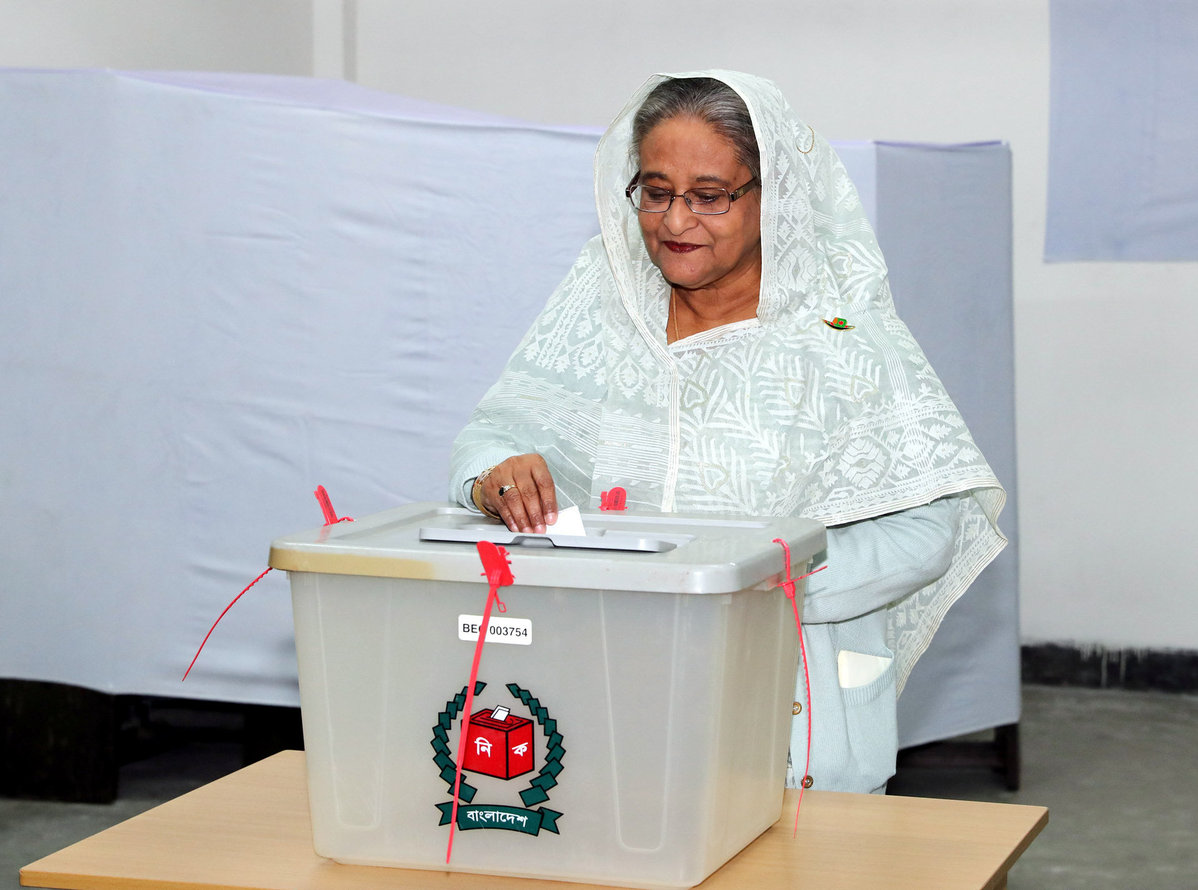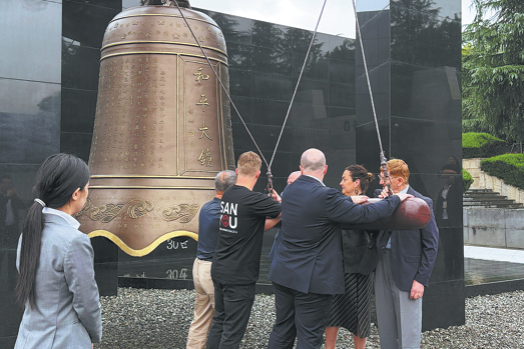Bangladeshi Prime Minister Sheikh Hasina to form new cabinet
China Daily | Updated: 2019-01-03 09:11

Bangladeshi Prime Minister Sheikh Hasina's ruling Bangladesh Awami League, which gained a stunning majority in the general election on Dec 30, will form its new cabinet before Jan 10, according to the party's General Secretary Obaidul Quader.
Quader said that preparations were underway to form the new government, in which Hasina will be the prime minister.
Hasina, the longest serving Bangladeshi prime minister, will end her second straight five-year term this month, and she is set to serve a record fourth term in office.
Nearly 300 members of Bangladesh's parliament that were newly elected will be sworn in on Jan 3. Before the swearing-in of the newly-elected members of the parliament, the final results of the Dec 30 general election will also be published in a government gazette, said Bangladeshi Information Minister Hasanul Haq Inu, who is also president of the Jatiya Samajtantrik Dal, an ally of Awami League-led Grand Alliance.
Zhang Xiaoyu, a lecturer in Bengali Studies, Communication University of China, said that Hasina didn't win by chance. Bangladesh had achieved success in economic growth and development under her rule, and its economic growth reached 7.86 percent year-on-year in the 2017-18 fiscal year.
"Undoubtedly, the majority winning of the Awami League has ensured that Hasina's government will be able to make governance smooth and continue its development policies and reduce the internal friction caused by political disputes," she said.
However, the next five years might not be very easy for Hasina, as Bangladesh still has complicated domestic issues to solve, including creating jobs, poverty reduction, anti-corruption and refugee issues.
Awami League won 259 out of the 298 parliament seats, while its key ally, former president HM Ershad's Jatiya Party, gained 20 seats in the election that was marred by violence. At least 17 people were killed in election-related violence, according to Xinhua News Agency.
However, ex-prime minister Khaleda Zia's Bangladesh Nationalist Party (BNP) said that five of its leaders who were elected in the 11th parliamentary polls will not take the oath as the major opposition party has rejected the results, alleging various irregularities in the election, including forcing out polling agents and stuffing ballots.
Hasina's Awami League party brushed aside these allegations, saying the opposition alliance has been resorting to lies when it was clear it would not win.
Hasina became prime minister the first time in 1996, steering her party to power after a long gap of 21 years. In 2008, she led her party to win more than two-thirds of seats in parliament.
The Awami League retained power in the 2014 polls, which were boycotted by the BNP-led alliance.
Chen Yingqun and Xinhua contributed to this story.
























